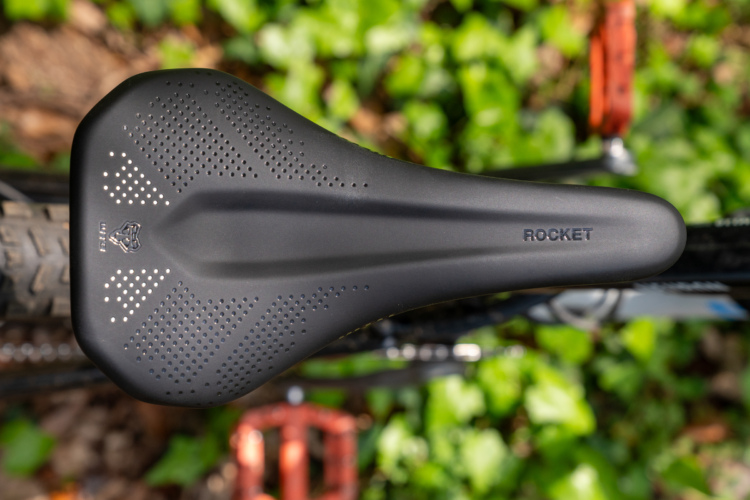
Adaptive mountain biking is having a moment right now. We tend to think of mountain biking as one big community, but it’s full of sub-communities. So when like-minded people get together, it’s often a force for good.
In 2006 and in his early 20s, Roy Tuscany was an “aspiring pro skier,” trying out a 100ft jump. He made sure to pick up enough speed not to come up short, but it was too much and he overshot it by about 30ft, coming down to the ground, collapsing and shattering his T12 vertebrae. Doctors told him he’d never walk again.
But Tuscany underwent a spinal stability surgery and supported by his home and ski communities, enlisted in physical therapy and eventually walked out of the facility.
“That injury was the catalyst for these amazing communities that helped raise money for me so I could focus on my own recovery,” he said. “At the end of it, it hit me that folks that love the outdoors and fall into the same shoes that I did, who have sustained life-changing injuries…why not start a foundation that would help folks just like folks helped me, because maybe everyone doesn’t have a big community.”
Tuscany started the High Fives Foundation in 2009 with the goal of helping one person who suffered a spinal cord injury every year through their recovery process. Fourteen years later, High Fives has helped over 600 people from 45 states through their first year of recovery and into the adaptive sports community.
High Fives started where Tuscany did; on snow, with skiing and snowboarding, before branching out to surfing, fly fishing, UTVs and dirt bikes, and now, ultimately their biggest program, mountain biking. Tuscany says it was a friend and professional mountain biker who turned him on to two wheels.
Skiing was a major part of Tuscany’s identity before his crash, and he realized it would never be the same for him. At the 2015 Red Bull Rampage, freerider Paul Basagoitia crashed on course and also fractured his T12, instantly paralyzing the rider from the waist down. Like Tuscany, Basagoitia wasn’t sure what the future would hold for him as an athlete.

The mountain biker eventually started riding e-bikes and has been an advocate for them since. Tuscany reached out to Basagoitia, and before long, Tuscany was e-biking too, spurring a new sport for High Fives.
“I have to credit Paul,” Tuscany said. He hadn’t mountain biked much before his accident and now riding takes up more of his time than any other sport.
“My legs don’t work without the e-bike motor,” said Tuscany. “With it, you’d never know I’m disabled.”

Building a destination
Adaptive mountain biking has been growing all over the U.S. with adaptive-friendly trails in Vermont, Canada, Minnesota, and more. The Central Oregon Trails Alliance is working on evaluating over 100 miles of singletrack to make them suitable for adaptive riders.
High Fives holds about 12 events per year and their latest project will be a progressive playground for future events. The organization is working with Sky Tavern Ski Area, a mountain owned by the City of Reno, with a goal to have a total of ten, adaptive-friendly trails on the mountain. They’re up to four total now.
Two are brand new and two are existing trails that have been brought up to adaptive standards. High Fives is working with Steve Wentz of Momentum Trail Concepts to build out the trails.
Adaptive trails use a width of 58″ with no choke points to clear some adaptive bikes, but Tuscany insists the trails are still plenty of fun for everyone.
“I think what’s neat about these is that they’re inclusive for all,” he said. “Now, are these the raddest, like you’re going to go through a bone yard? No, you’re not, but you’re going to go through something that’s really well built, really well designed for flow and also the opportunity to get pretty rad on as well.”
The first trail is called High Five and it’s a 2-mile-long downhill flow trail. The other new trail is called College Boy and it’s more technical with rocky sections and gaps. One of the other four trails is even more technical.
“There’s a really great progression that happens at Sky Tavern as well.”
They still have a lot of work left at Sky Tavern, and Tuscany doesn’t expect it to be complete until 2026. They’ll need to expand accessibility at restrooms and other facilities, and preferably add a new bike rental fleet before calling it a destination too so not everyone has to haul their bikes on a trip. But having a new slew of adaptive-friendly trails close to High Fives’ home in Truckee should help the organization turn more people onto mountain biking and bring more people into what’s becoming a foundational community.
“[We want to] get more people into biking and get people reconnected to the bike community, and for others that have been a part of our mentor/mentee process, for athletes to come out and share how to ride an adaptive bike, how to inspire that person to understand. It’s really just about building community.”





















1 Comments
Jun 8, 2023
Hats off to the people who are seeing this through and those who are participating in the ride. Greatness at its finest!!